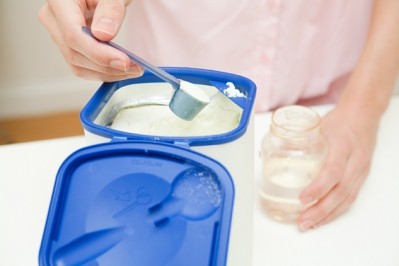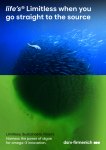Understanding immune responses in breastfed babies could reduce infectious disease

However, a greater understanding of immune responses could help shed light on health problems such as infant diarrhoea, pneumonia, and autoimmune diseases.
Recent study results, published in ‘Evolution, Medicine and Public Health’, reveal contrasting activity to proinflammatory responses and infectious diseases (ID) from breastmilk contaminated with salmonella (S. enterica).
The bacteria inevitably increased the risk of gastrointestinal infections in response to E.coli, but also lowered the risk of infant respiratory infections.
“Breastfed infants have dramatically lower ID risk than infants fed milk substitutes. The activity of the immune system of milk (ISOM) likely plays an important role in this protection; however, the extent to which this activity is subject to well-characterised trade-offs between protection against infection and immune-mediated damage remains incompletely understood,” the authors write.
As such, they assert that optimising the mother-to-infant proinflammatory activity should be a central theme “in future ecological-evolutionary studies of the immune system of milk”.
Contrasting results
The study involved approximately 100 randomly selected mother and baby pairs from rural communities in Kilimanjaro, Tanzania, and assessed the impact of breastmilk immune system on infant health.
In vitro tests combined two millimetres of sample milk with either one millilitre of S. enterica or E.coli. The specimens were incubated for 24 hours and analysed for increases of interleukin-6 (IL-6) – immune cells that promote inflammation and are indicative of infant immune responses to bacteria.
The IL-6 response to S. enterica was associated with lower risk from ID (including respiratory), while the response to E.coli was “unassociated” with ID risk but linked to gastrointestinal ID.
Researchers noted that each doubling of the IL-6 response to S. enterica was associated with 23% lower risk for any respiratory infection; by contrast, each doubling of the IL-6 response to E. coli was associated with a 29% increase in risk for gastrointestinal infection. This produced opposite effects on risk for ID overall.
Immune compromises
Infant immune responses were monitored for the duration of the two and half month study to screen for illness. Results demonstrated that infants who received milk with stronger immune responses during in vitro tests had a lower risk of contracting infectious diseases – and particularly respiratory infections, such as pneumonia.
However, the same milk stimulated a strong negative response to a benign strain of E. coli, common in the human gut, and increased infant risk from gastrointestinal infections.
There are compromises with all immune responses, the authors explain, but the negative effect from breastmilk was “a surprising discovery”.
Lead author and Associate Professor of Anthropology at Binghamton University, Katherine Wander comments: “With so much at stake, we really expected the immune system of milk to be very finely tuned to protecting infants against infection.”
Implications
The authors speculate that breastmilk immune responses, identified in the study, may help “train” an infant’s developing immune system to respond to dangerous bacteria.
Furthermore, findings could have implications for public health and healthcare that go beyond infancy and breastfeeding, although more research is needed to fully understand the relationship between ID, microflora, and the immune system within milk, they say.
“Too often, we implicitly assume that immune responses to separate stimuli are entirely separate — as though the immune system’s ability to respond to a dangerous infectious agent doesn’t have any implications for its ability to tolerate something that’s beneficial or benign, where the response is likely to do more harm than good,” Wander remarks.
“Clues that this isn’t the case are accumulating, though, including this study.”
Source: Evolution, Medicine, and Public Health
Published online: doi.org/10.1093/emph/eoac020
‘Tradeoffs in milk immunity affect infant infectious disease risk’
Katherine Wander et al.















